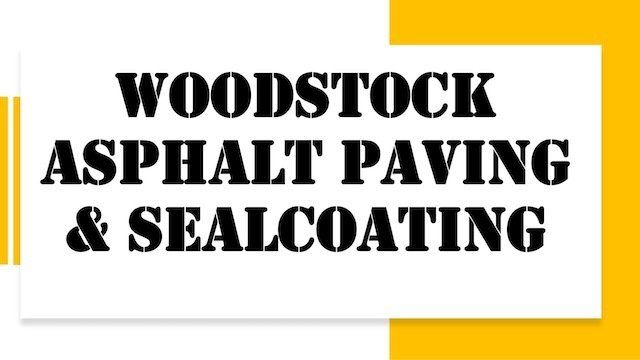Why Weather Matters How Climate Conditions Affect Asphalt Sealcoating
Sealcoating is one of the most effective ways to protect and prolong the life of asphalt surfaces. Whether it’s your driveway, a commercial parking lot, or a sprawling property, applying a durable sealant can save you money in the long run by maintaining the integrity of the asphalt and shielding it from wear and tear. But while many people recognize the value of sealcoating, far fewer understand the pivotal role that weather plays in the process.
The truth is, sealcoating isn’t just about choosing the right product or hiring a contractor; it’s also about recognizing how climate conditions can make or break the application process. From temperature fluctuations to humidity levels and precipitation, every factor matters when ensuring a strong, long-lasting seal.
This blog explores why weather should always be at the forefront of your sealcoating plan and explains how climate conditions directly impact both the application process and the longevity of your asphalt surface.
The Importance of Sealcoating
Sealcoating is a protective layer applied to asphalt surfaces that guards against harmful elements like water, UV rays, oil leaks, and oxidation. Over time, asphalt naturally degrades due to repeated exposure to these environmental stressors. Without proper maintenance, small cracks can expand, allowing water to seep below the surface and weaken the entire structure.
Key benefits of asphalt sealcoating include:
- Extended Lifespan: Well-maintained asphalt can last up to 20-30 years when properly sealed.
- Enhanced Appearance: Sealcoating restores the deep, black color of asphalt, making it look fresh and professional.
- Improved Protection: Asphalt becomes more resistant to weather, oxidation, and the corrosive effects of vehicle fluids.
While sealcoating offers numerous advantages, it’s also a delicate process that depends heavily on external factors like weather.
What Weather Conditions are Ideal for Sealcoating?
To ensure a sealcoating project is successful, the application needs to occur under favorable weather conditions. Specifically, the following factors play a critical role:
1. Temperature
Temperature is arguably the most crucial weather consideration for sealcoating. Optimal application typically requires air and surface temperatures to stay above 50°F (10°C) for at least 24-48 hours.
- Why this matters: Sealcoating is water-based, and it requires sufficient heat to evaporate the water content, allowing the sealant to cure and harden. If temperatures dip too low, the sealant may not dry properly, resulting in an uneven application that can quickly deteriorate.
- What to avoid: Cold or freezing temperatures can cause the sealant to crack prematurely, whereas excessive heat over 90°F (32°C) might cause the sealant to dry too quickly, leading to surface inconsistencies.
2. Humidity
Humidity levels impact the drying and curing process of sealcoating. Ideally, humidity should remain within a moderate range (below 50%) to allow proper evaporation without delays.
- Why this matters: High humidity slows down the drying process, as the air retains more moisture, making evaporation much less efficient. Conversely, extremely dry conditions combined with high heat may accelerate curing to the point where the sealant becomes brittle.
- What to avoid: Days when humidity exceeds 90%, particularly in areas prone to rain or fog, as this can leave the sealcoat sticky and prone to damage.
3. Sunlight Exposure
Direct sunlight is often underestimated in its influence on sealcoating projects. Ideally, a day with consistent sunlight, clear skies, and limited shade will support faster curing.
- Why this matters: Sunlight works hand-in-hand with warm temperatures to speed up the evaporation of water from the sealcoating mixture. Without ample sunlight, the curing process may stall, leaving the surface vulnerable to smudging, tracking, or early wear.
- What to avoid: Overcast days without sunlight or shaded areas that reduce exposure. Schedule the project during the time of year when sunny skies are most consistent.
4. Wind Speed
Light winds can provide a helpful boost to the drying process, but excessively windy days could create issues.
- Why this matters: Gentle breezes help remove moisture from the surface, while strong winds might carry dust, debris, or even tree leaves onto the freshly sealed asphalt. This kind of contamination can compromise the sealcoating layer.
- What to avoid: Wind speeds over 15 mph, particularly in areas surrounded by trees, construction work, or loose soil.
5. Precipitation
Rain can quickly undo even the best-sealcoating applications. To achieve proper curing, there should be no rainfall in the forecast for at least 24-48 hours after sealcoating.
- Why this matters: If rain falls on freshly applied sealant, it can wash away the protective layer before it has set. This not only wastes materials and increases costs but can also leave the asphalt exposed to future damage.
- What to avoid: Condensation or dew early in the morning can also disrupt drying, so ensure moisture won’t settle on the surface during the curing period.
Seasonal Considerations for Sealcoating
Spring
Spring can be hit-or-miss for sealcoating projects. While temperatures often rise enough to allow for application, spring showers or residual frost from colder months can delay the curing process. Check weather forecasts carefully before scheduling.
Summer
Summer is ideal for sealcoating in many regions due to warm temperatures, consistent sunlight, and low humidity. However, heat waves can create extreme conditions, like rapid drying, that may necessitate early morning or evening applications when temperatures are more moderate.
Fall
Much like spring, fall can be unpredictable. Shorter daylight hours and falling temperatures may pose challenges, especially in northern regions. Still, clear and sunny autumn days are great for sealcoating before winter arrives.
Winter
Winter is generally unsuitable for sealcoating due to cold temperatures, increased precipitation, and the presence of snow or ice. Avoid scheduling projects during this season in all but the warmest climates.
Tips for Weather-Sensitive Sealcoating Projects
- Plan Ahead: Always check the weather forecast at least a week in advance to minimize the risk of complications.
- Work with Experts: Experienced contractors understand the nuances of sealcoating and can guide you on the best timing for your project.
- Adjust Scheduling as Needed: Be flexible and ready to delay if weather conditions change unexpectedly.
- Account for Climate Differences: If your area experiences extreme weather (e.g., high humidity or intense heat), work with contractors familiar with those conditions.
How Improper Weather Can Impact Longevity
When sealcoating is applied under poor weather conditions, the consequences can range from aesthetic flaws to structural failures. These include:
- Surface cracking
- Uneven color or texture
- Premature wear and erosion
- Reduced protection against water infiltration
By ensuring optimum weather conditions, you’ll extend the lifespan of both the sealcoating and the asphalt beneath.
Sealcoating Requires the Right Timing
Quality sealcoating doesn’t rely on skill and product alone; it requires cooperation with Mother Nature. By taking the time to consider the impact of weather variables such as temperature, humidity, and sunlight, you can make confident decisions that ensure the best possible results for your asphalt surface.
Need Professional Guidance?
If you’re planning a sealcoating project and want expert advice, [Contractor Name] is here to help. With years of experience and a keen understanding of how weather affects sealcoating, we’re equipped to make your project a success. Contact us today to learn more about scheduling and getting started with sealcoating services.
We proudly serve the following cities: Acworth, Alpharetta, Atlanta, Austell, Brookhaven, Canton, Cartersville, Dallas, Decatur, Doraville, Douglasville, Duluth, Dunwoody, East Cobb, Hiram, Johns Creek, Kennesaw, Lilburn, Mableton, Marietta, Milton, Powder Springs, Roswell, Sandy Springs, Stone Mountain, Suwanee, Tucker, Villa Rica, and Woodstock Ga.
Woodstock Asphalt Paving & Sealcoating
Woodstock Ga 30188
404-724-8034


